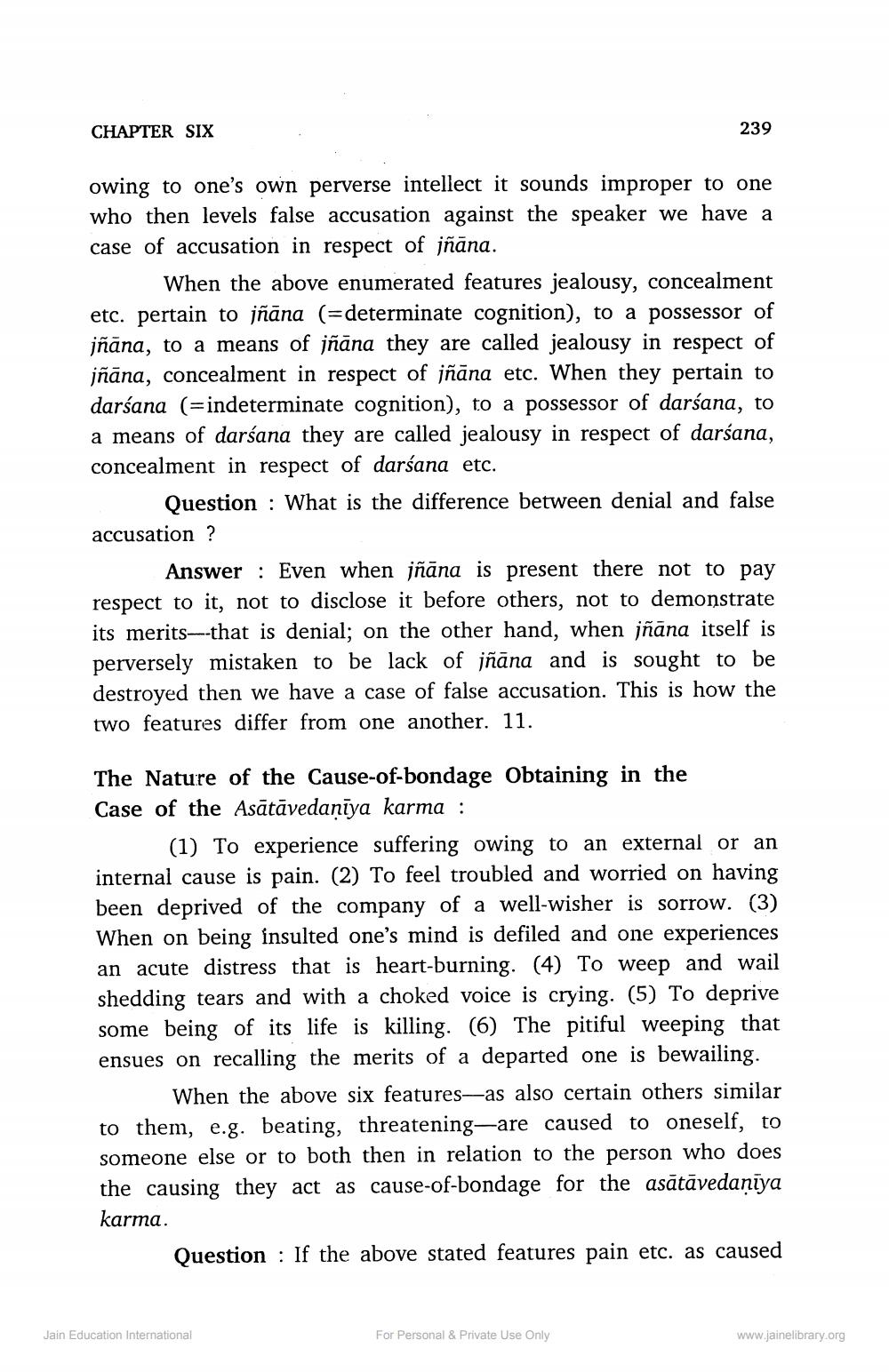________________
CHAPTER SIX
owing to one's own perverse intellect it sounds improper to one who then levels false accusation against the speaker we have a case of accusation in respect of jñāna.
When the above enumerated features jealousy, concealment etc. pertain to jñāna (=determinate cognition), to a possessor of jñāna, to a means of jñāna they are called jealousy in respect of jñāna, concealment in respect of jñāna etc. When they pertain to darśana (=indeterminate cognition), to a possessor of darśana, to a means of darśana they are called jealousy in respect of darśana, concealment in respect of darśana etc.
Question: What is the difference between denial and false
accusation?
239
Answer: Even when jñāna is present there not to pay respect to it, not to disclose it before others, not to demonstrate its merits--that is denial; on the other hand, when jñāna itself is perversely mistaken to be lack of jñāna and is sought to be destroyed then we have a case of false accusation. This is how the two features differ from one another. 11.
The Nature of the Cause-of-bondage Obtaining in the Case of the Asātāvedaṇīya karma :
(1) To experience suffering owing to an external or an internal cause is pain. (2) To feel troubled and worried on having been deprived of the company of a well-wisher is sorrow. (3) When on being insulted one's mind is defiled and one experiences an acute distress that is heart-burning. (4) To weep and wail shedding tears and with a choked voice is crying. (5) To deprive some being of its life is killing. (6) The pitiful weeping that ensues on recalling the merits of a departed one is bewailing.
When the above six features-as also certain others similar to them, e.g. beating, threatening-are caused to oneself, to someone else or to both then in relation to the person who does the causing they act as cause-of-bondage for the asātāvedaniya karma.
Question: If the above stated features pain etc. as caused
Jain Education International
For Personal & Private Use Only
www.jainelibrary.org




